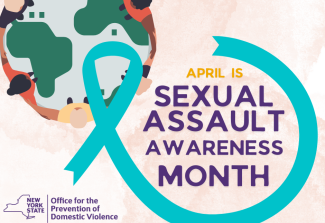N.Y.S. Senate Appropriates $4 Million for Neurobehavioral Health at SUNY Plattsburgh
A $4 million appropriation from the New York State Senate will help expand community access to neurobehavioral services at SUNY Plattsburgh.
The funding is part of the state's 2014-2015 Enacted Budget, which set aside $49 million for capital projects, pursuant to approval of a plan by the Senate.
It will help finance a Sibley Hall renovation project, creating a new Center for Neurobehavioral Health in what is currently the building's gymnasium. The changes will allow for a greater integration of the college's:
- Nexus Autism Spectrum Program.
- Traumatic Brain Injury Center.
- Alzheimer's Disease Assistance Center.
- Third Age Adult Day Center.
- Neuropsychology Clinic and Psychoeducational Services.
In addition to better integrating services, the move is designed to increase service capacity; provide for better public access; improve diagnostic and treatment programs; build a comprehensive, efficient service delivery system; and allow for greater collaborative research. It will also facilitate more undergraduate and graduate preparation in the field.
Construction is expected to begin during the summer of 2015 and be completed in 2017. The project is projected to cost around $8.5 million, with the remainder of the money coming from the the State University of New York Construction Fund.
An Opportunity to Meet 'Growing Need'
“The creation of the Center for Neurobehavioral Health will enable SUNY Plattsburgh to help meet the needs of those suffering from neurological health problems,” said N.Y.S. Senator Betty Little who championed the appropriation. “As we know, these issues are very complex and extremely challenging. More diagnostic and treatment programs, new training opportunities and expanded collaborative research will ensure better outcomes from those affected.
“This is an important opportunity to meet a growing need, and I was pleased to do what I could to support the college in its effort,” she said.
“We are grateful to Senator Little, Senator Kenneth LaValle and their colleagues, as well as the team at the college, for recognizing the impact the center will have on the neurobehavorial health of North Country residents,” said Acting Chair of the College Council Salvatore Graven ’02.
It was a sentiment echoed by the center's new interim executive director, Dr. Michael Morales.
Plans have been in the works for nearly two years now, he said. “And it is absolutely wonderful to see the facility receive this support and come to fruition.
“To me, this funding means the center will be able to continue to meet its mission of providing services to the community and educational opportunities to our students or future professionals in the longer term.”
About the Center for Neurobehavioral Services
With a current staff of 34, SUNY Plattsburgh's Center for Neurobehavioral Health provides a variety of services to North Country residents affected by neurological impairments. These include an adult respite day care, traumatic brain injury support, service coordination, long-term care, assistance with developmental disabilities, chronic disease self-help training and clinical services through the Neuropsychology Clinic and Psychoeducational Services and Alzheimer's Disease Assistance Center.
In addition, the center includes grant-funded programs like the Eastern Adirondack Health Care Network, the Adirondack Regional Technology Center and the Regional Center for Autism Spectrum Disorders.
“It also helps the community by providing training to future health care professionals, mental health care professionals and school psychologists and providing local jobs for those in our area,” Morales said.
Over the last academic year, center staff provided learning opportunities and training for 227 undergraduate and graduate students from a variety of programs, including the college's undergraduate psychology, nursing, social work and human development and family relations programs, along with its graduate programs in school psychology and counselor education.
News

SUNY Recognizes Two Plattsburgh Seniors for Excellence in Academics, Leadership

Sexual Assault Awareness Month Events Planned Throughout April
‘Day of Visibility’ Recognizes, Highlights Members of Transgender Community
SBE Teams with CVPH Medical Center to Train Management Personnel
